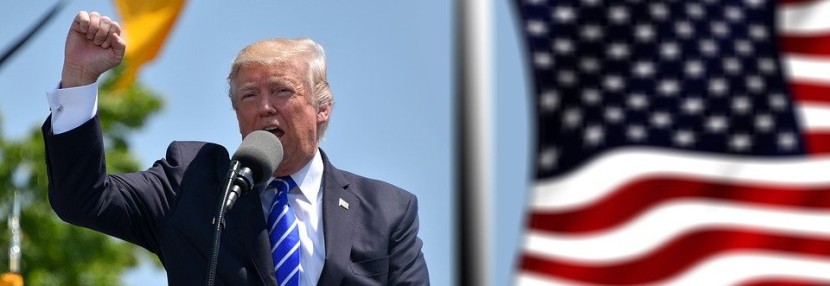
On Wednesday, President Donald Trump stated on Twitter that Iran is planning on a 'sneak attack' on United States troops and assets in Iraq. According to Trump, Iran will 'pay a heavy price' if any aggressive attack is initiated.
The president made the unexpected declaration in a tweet Wednesday afternoon, coming in the midst of waiting tensions between the two countries over past confrontations as well as the coronavirus pandemic.
Trump tweeted, "Upon information and belief, Iran or its proxies are planning a sneak attack on U.S. troops and/or assets in Iraq. If this happens, Iran will pay a very heavy price, indeed!"
Trump's tweet came soon after he attended an intelligence briefing at noon at the White House. Among the reported targets is the base that was hit in a prior missile strike.
The US and Iran are as of now at loggerheads over the effect of US sanctions on Tehran's capacity to battle the coronavirus pandemic, and the danger of a military assault on the US is probably going to complicate the situation.
The Iranian army chief of staff, Mohammad Bagheri, said the ongoing spate of assaults on US bases in Iraq were nothing to do with Iran but were "a natural response by the Iraqi people." He said US forces were being firmly observed minute by minute and any US attack would produce the most serious action.
Sources disclosed to Fox News that the U.S. believes Iranian sponsored proxies were arranging the sneak attack and that Trump's tweet was a warning to the Iranian administration to advise their proxies to withdraw or face consequences.
In late March, Secretary of State Mike Pompeo stated that Iran had refused the American guide for addressing the coronavirus pandemic.
Pompeo also denounced Iranian leader Ayatollah Ali Khamenei, Iran's supreme leader, Ayatollah Ali Khamenei, has emerged as one of the most powerful and most impressive Iranian leaders of the last century and wields control over all aspects of the country's administration, military, and media.
The secretary of state expressed his dismay with Iran's leader for reportedly spreading conspiracy theories that the U.S. was responsible for the outbreak, and pointed out Iran's own wrongdoings that exacerbated the spread of the virus.
The most recent tension comes several months after threats between the U.S. and Iran that included an attack at the U.S. Embassy compound in Iraq that U.S. authorities blamed on Iran. In response, the U.S. carried out a strike that resulted in the demise of Iranian Gen. Qassem Soleimani.
Prior to the embassy attack, U.S. airstrikes against an Iranian-sponsored Shiite volunteer army in Iraq, which the U.S. military said was counter for the killing of an American contractor in a rocket assault on an Iraqi army that it had blamed on the militia.
Regardless of being doubtful of the 2015 Iran nuclear deal, Khamenei hesitantly gave both President Rouhani and the deal brokered under the Obama organization his approval.
Since President Trump pulled out of the arrangement and exerted hefty sanctions on Iran in an effort to curb their nuclear proliferation, Khamenei has grown increasingly angered and disdainful in the U.S., which he has described as 'deceitful, untrustworthy and backstabbing.'








